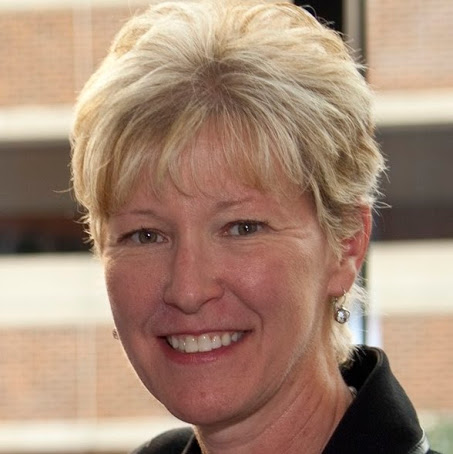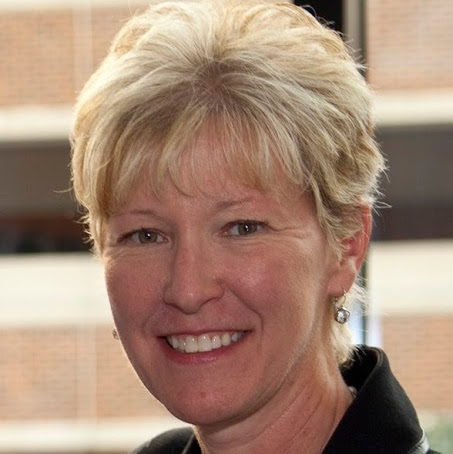
Guest Post – Functionality Plus Fit Equals Better Fund Raising
 A Post by Dawn M. Fish, M.A., CFRE
A Post by Dawn M. Fish, M.A., CFRE
Reading the recently released report, Underdeveloped: A National Study of Challenges Facing Nonprofit Fundraising by Jeanne Bell and Maria Cornelius, I reflected upon my 25 years as an executive, development director and gift officer raising funds in social service, health care and higher education institutions. The report contains no surprises, but did fail to address two major issues related to nonprofit fund-raising failures: the traits and skills necessary in an effective director of development (DOD) and the relationship between the executive director (ED) and the DOD.
DOD traits and skills
An effective DOD must possess a cadre of highly sought-after traits and skills, capably exercising them on a moment’s notice. The successful DOD must possess traits such as integrity, resilience, persistence, tact, diplomacy, humility, confidence, compassion, team compatibility, intuition, adaptability and flexibility, to name a few.
S/he must also possess important skills, such as the ability to think critically, write compellingly, articulate the institutional mission and programs, possess excellent interpersonal communication abilities, and speak confidently in public or high-pressure situations. A DOD must think on her feet, delivering the right response at the right time, and must often address planned and unplanned situations on behalf of the institution.
A DOD must be able to effectively build, maintain and mend relationships, make sense from ambiguity, execute leadership or defer to it, intuitively read people, write gift proposals, develop and understand budgets, and interpret and articulate institutional strengths and programs. S/he must often perform utilitarian duties like running queries from a database, capturing a photo at the right moment and be in many different places in the course of one day. A DOD must be able to take this in stride and thrive on the reality that whatever they plan to do in a day can be changed by one phone call. Most nonprofits fail to adequately assess a person for these strengths, and fail to value and adequately compensate people who possess them.
The ED-DOD relationship
Trust and rapport between the ED and DOD are essential. This relationship requires these two primary fundraisers to have similar values, respect for each other, healthy egos, humility and a willingness to learn from one another.
Relative to that relationship, a DOD must perform well in three different but primary roles to successfully raise funds.
First, the DOD must willingly and capably assist the ED and board leadership in raising funds. This means functioning as a coach, executive assistant, and writer in preparing institutional and volunteer leadership to ask for gifts. Likewise, it means an ED must value, recognize and reward the development director’s insights, input and opinions. Often, that is threatening to an ED. Most EDs do not see themselves accepting input or coaching from a subordinate, or learning from that person.
Second, a DOD must be able to confidently and effectively represent the institution to donors on their own. The ED must trust the DOD to do this and not be intimidated by this representation in their absence. That trust is often missing.
Further, an ED often feels threatened by representation without their participation. An ED’s insecurity with this representation, or a DOD’s ambition and disregard for the ED’s authority, will cause friction. A DOD must also possess the ability to ascertain when to take charge and when to defer to others in charge. Often, an ED is not able to relinquish “being in charge” to the DOD, and equally as often, a DOD oversteps her/his turf and inappropriately takes charge.
Third, the DOD must effectively partner with the ED, board members and key programmatic leadership to jointly represent the institution. This requires a DOD to have the discretionary insight about who should be involved in a visit, their role, and know if and when to moderate and participate in the conversation or respectfully defer to others and just be quietly present to observe. The ED must trust this intuition and experience. The DOD must also earn the trust and respect of programmatic leaders in articulating the substance and value of their programs to donors.
A DOD must possess the intrinsic ability to recognize what hat they must wear in any situation, executing these key traits and skills as needed.
Nonprofit leadership must be able to identify and evaluate the necessary traits and skills in a DOD and hire according to the best possible fit with the ED. Too often, the DOD’s traits and skills are not effectively evaluated and the nonprofit does not provide adequate compensation to hire the appropriate DOD. Worse yet, even the best DOD will not be retained if the relationship between the ED and DOD is not positive, productive, rewarding and effective.
Dawn M. Fish, M.A., CFRE is a seasoned professional fund raiser with 25 years of significant accomplishments in the philanthropic sector.
She has successfully worked with benefactors to channel principal and major gifts toward their personal passions in higher education and healthcare philanthropy. She has held senior advancement positions with Scholarship America, the Humphrey School of Public Affairs, a private family foundation, and has served as a chief development officer at the University of Minnesota Medical School’s Diabetes Institute, in addition to 10 years’ development directorship in social service nonprofits. She joined the Abbott Northwestern Hospital Foundation in January 2013 as a development officer, based on her passion for healthcare philanthropy.
She has served on numerous boards, including the Minnesota Chapter of the Association of Fundraising Professionals, the Juvenile Diabetes Research Foundation, the Metropolitan State University Alumni Board, and the former St. Bernhard’s High School. She currently serves on the boards of HousingLink (Minnesota), and the Dakota Association of Professional Investigators. She is a member of the Association of Fundraising Professionals, the Minnesota Planned Giving Council (MNPGC), and the America Prospect Research Association (APRA).
She holds a master’s degree in organizational leadership from St. Catherine’s University, a bachelor’s degree in communications from Metropolitan State University, and has completed coursework toward a master’s degree in legal studies with Kaplan University. She was a 2010 Humphrey School of Public Affairs Policy Fellow and holds the Certified Fund Raising Executive (CFRE) credential.

Dawn – – this is excellent information for any organization, but particularly a non-profit organization to read, reflect and utilize.
Thank you for listening today and for sending this valuable vision that leads to more
effective leadership.
With Appreciation and gratitude,
Ruth Usem